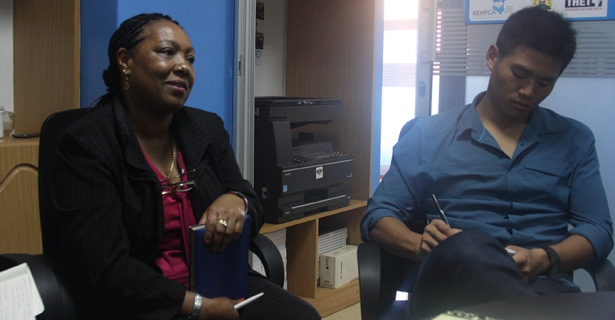The Open Society Foundation workshop on "Documenting Palliative Care and Access to Pain Medications for Adults and Children in Kenya" just wrapped up its second full day in Nairobi.
With arrivals happening late into the night on the 18th, the group was up for an early morning meeting at the Nairobi Hospice, the oldest hospice in Kenya. There the students met with Lynette Kitui, the hospice's social worker; Joyce Njuguna, the nursing officer; and Alice Bacia, the organization's public relations officer. That afternoon they met with the Clinton Health Access Intiative and then had dinner with Emmanuel Komanyo, the director of the Open Society Institute in East Africa. The next day was another series of meetings with the women who have led the palliative care effort in Kenya: Dr. Zipporah Ali, the founding director of the Kenyan Hospice and Palliative Care Association; Dr. Esther Munyoro, the founding director of the Palliative Care and Pain Center at Kenyatta National Hospital, the first palliative care center in a public hospital; and Dr. Faith Mwangi-Powell, the founding director of the African Hospice and Palliative Care Association.
While there have been many improvements in Kenya's approach to palliative care and access to pain medication, many challenges remain, such as:
• the Government estimates that there are 30,000 new cases of cancer each year and says that 28,000 of those will succumb to the disease
• there has been only one radiotherapy machine in the country, located at the national referral hospital, Kenyatta National Hospital, and the queue for treatment is 1,800 people long and appointments are no longer being scheduled since the next available dates reach into 2017
• the country ordered 47kg of morphine last year -- an estimated 10 percent of its need
• concerned about addiction or overdose, many physicians are reluctant to prescribe morphine for their patients and until recently, many were encouraged not to
It has been a whirlwind of information and the group is prepared to begin its work, bringing a human face to the need for palliative care and access to pain medication.

